The Mountain Research Initiative: Making Connections for Our Changing Mountains
The Mountain Research Initiative (MRI) envisions a world in which diverse, fair, and inclusive global change research informs and enables transformative pathways to sustainable development in mountains, for the people and ecosystems that depend on them.
The MRI serves as a coordination network for research collaboration, bringing the mountain research community from diverse backgrounds, expertise, and disciplines together. Since its origins in the 1990s, and with the founding of the MRI Coordination Office in 2001, the MRI has striven to promote basic and applied research to understand how drivers and processes of global change present challenges and opportunities in mountain social-ecological systems.
To achieve our vision, the MRI nurtures spaces, mechanisms, and actions for mobilizing, pooling, and integrating scientific and other forms of global change knowledge. This effort informs stakeholders about the implications of our findings for policy and practice, contributing to a sustainable future for mountain communities and ecosystems. Through these initiatives, we also strive to help advance and support a systems approach to global change research. Furthermore, we provide opportunities to help the next generations of professionals develop expertise in mountain research and practice.
Our Objectives
The MRI’s objectives for the period 2023-2026 build on the founding vision (Becker & Bugmann, 2001) of the MRI, and reflect three long-term and interconnected knowledge needs to which the MRI network can respond:
Consolidate the state-of-the-art based on 25 years of scientific advances, research, syntheses, data, and information that has been fostered via the MRI.
Drive agenda-setting for research that helps (re)define resilient mountains under the accelerating pace of global change.
Promote transformative research capabilities for sustainable mountain development.
Collectively, these three objectives represent a transformative leap forward for our network in this period. This entails progressing beyond enhancing scientists’ research capacity and focusing on building their capability to effectively apply results across science, policy, and practice.
Eight Functions of the MRI Coordination Office
Aligned with the objectives for the 2023-2026 phase, the MRI Coordination Office reinforces its support for the MRI network through an expanded framework of eight key functions. These functions fortify the network’s mission and advance its vision towards fostering transformative pathways to sustainable development in mountains (adapted from Adler et al., 2020).
- Strengthen the Network
- Bolster Research Activity
- Enable Capacity Building
- Support Thematic Advocacy
- Provide Resource Opportunities
- Facilitate Science–Policy–Society Interaction
- Communicate Effectively
- Track Impact

Source: adapted from Adler et al., 2020
Funding and Endorsement
The MRI is a partner of Future Earth and the Belmont Forum, and a participating organization of the Group on Earth Observations. It is also a member of the Mountain Partnership and the International Mountain Society (IMS).
The MRI is hosted by the Centre for Development and Environment (CDE) at the University of Bern, and receives core funding from the Swiss Academy of Sciences (SCNAT).
For their contributions to MRI Flagship and Community-Led Activities, we thank the Swiss Agency for Development and Cooperation (SDC), the swissuniversities Development and Cooperation Network (SUDAC), the Office of Foreign Affairs of the Principality of Liechtenstein, Future Earth, and other partners.
Supported by

Hosted by


